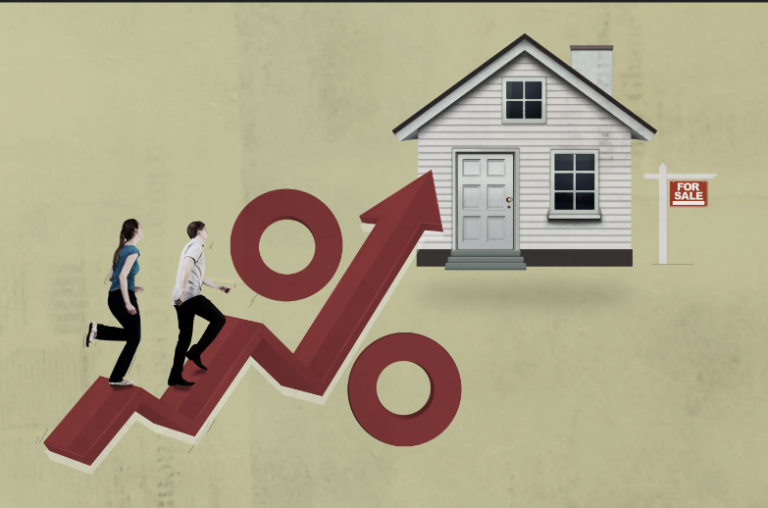Did you know that there are 600,000 mortgage borrowers1 currently on a standard variable rate (SVRs) who could be overpaying by thousands of pounds each year?
These rates are substantially higher than fixed-rate mortgages, and this situation is affecting many homeowners.
In fact, brand new data from mortgage broker Mojo Mortgages has uncovered a staggering 3.20% difference between the average SVR (7.25%) and the average 5-year fixed rate (4.05%) among the Big Six lenders.
With interest rates fluctuating unpredictably, now is an ideal moment for these homeowners to reassess their mortgage options and seize the opportunity to save thousands.
£385 per month: The potential saving you could make by switching your mortgage
Let’s break down the potential savings using Mojo Mortgages’ internal data.
For an average-priced home in the UK (£267,100) with a 75% loan-to-value ratio, here’s how mortgage rates compare:
-
5-year fixed rate: Switching from an SVR to a 5-year fixed rate could save you a staggering £385 per month. That’s £4,620 annually – enough to help with the current cost of living or to give you a significant boost to your savings.
-
2-year fixed rate: Even if you opt for a shorter term, switching to a 2-year fixed rate could save you £385 per month, which amounts to £4,620 per year.
|
Mortgage type |
Average mortgage rate* |
Monthly mortgage payment |
Monthly saving |
Potential annual savings |
|
SVR |
7.25% |
£1,447 |
– |
– |
|
2-year fix (75% LTV) |
4.52% |
£1,115 |
£332 |
£3,984 |
|
5-year fix (75% LTV) |
4.05% |
£1,062 |
£385 |
£4,620 |
If you’re unsure what interest rate you’re on, you should review your mortgage statement. This will typically include your current interest rate. Look for sections labelled “interest rate” or “current terms”.
If your statement doesn’t provide this confirmation, reach out to your mortgage lender directly.
The four potential benefits of switching from a SVR to a fixed-rate mortgage
Beyond the potential financial savings (as shown above), switching to a fixed-rate mortgage can offer numerous advantages, including:
-
Predictable monthly payments: When you’re on a fixed-rate mortgage, your monthly payments remain consistent throughout the fixed term, making it easier to budget and plan your finances without worrying about unexpected increases.
-
Protection against potential interest rate rises: With a fixed-rate mortgage, you lock in your interest rate for the duration of the term (typically 2, 3, 5, or even 10 years). This means your mortgage won’t be affected by potential rate hikes from the Bank of England or other fluctuations in the mortgage market during the fixed period
-
Potential interest savings: By switching from an SVR to a lower fixed-rate mortgage, you could significantly reduce the amount of interest you pay over the life of your loan. This change allows more of your monthly payment to go towards paying down the principal balance rather than interest charges, potentially saving you thousands in the long run.
-
A potential peace of mind: Switching to a fixed-rate mortgage can take the pressure off having to constantly monitor interest rates, or worrying about how economic changes may affect your mortgage payments.
What you need to consider before making the switch
While switching from a SVR to a fixed-rate mortgage can offer significant benefits, it’s important to consider all aspects of the decision. Here are the key considerations:
-
Is there an Early Repayment Charge (ERC)? These fees can range from 1% to 5% of your outstanding balance if you leave your current mortgage early. For example, on a £200,000 mortgage, a 3% ERC would cost you £6,000. Weigh these charges against the potential savings from switching.
-
How long do you plan on staying in your property? If you anticipate moving within the next few years, a shorter fixed term (like a 2-year fix) might be more suitable, offering flexibility without the long-term commitment. Also, think about potential life changes such as starting a family, changing careers, or retiring, which could affect your housing needs and financial situation.
-
Do you need to pay an arrangement fee? Lenders often charge fees to set up a new mortgage, averaging around £1,0002 but can range from £0 to over £2,000. Some lenders even offer fee-free deals – so working with a mortgage broker can help you compare the overall costs of different options.
-
Have you spoken to a mortgage broker? Speaking with a mortgage broker can provide personalised advice tailored to your financial situation. They can guide you through available mortgage options, ensuring you look beyond just the interest rate and consider all associated costs to understand the true expense over the mortgage term.
-


